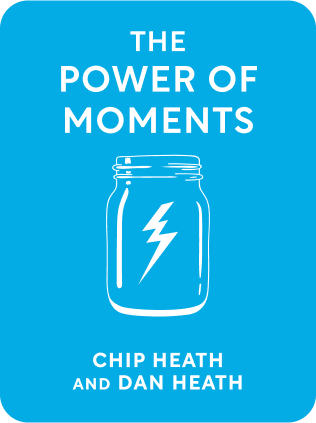

This article is an excerpt from the Shortform book guide to "The Power of Moments" by Chip Heath and Dan Heath. Shortform has the world's best summaries and analyses of books you should be reading.
Like this article? Sign up for a free trial here .
Why do people like surprises? What is the key to creating a good surprise?
Surprises add a little spice to a usual, mundane routine and they don’t have to be limited to special occasions. According to Chip and Dan Heath, the authors of The Power of Moments, there are two steps to creating a surprise: 1) identify scripts and routines, 2) think about how you can go off the usual routine in a meaningful way.
Here is how to surprise someone in a meaningful way.
How to Create a Strategic Surprise
The Heaths say that there are two parts to creating a strategic surprise:
- Identify scripts, or patterns, in your life, such as how your team meetings are run or how you spend time with your spouse after work.
- Determine how you can go off these scripts in a meaningful way.
For example, you examine your weekly HR meeting’s script and decide to add a strategic surprise: Assigning each of your team members a “new hire” role and sending them out to interview their “new teams” with questions about advice for new team members and maintaining work/life balance. At the end of the hour, your team members meet up and discuss your new insights. By going off your regular meeting script, you’ve elevated the experience and created a defining moment for your team members.
Meaningfully going off-script doesn’t mean completely upending the scripts of your life. Remember, memorable experiences are not wholly amazing—they’re largely mundane, with one or two exceptional peaks. Your goal, then, is to deliberately punctuate overall familiar and comfortable scripts with one or two delightful surprises.
There are usually two types of scripts that you’ll deal with: 1) one-off experiences and 2) repetitive, everyday experiences. Here is how to surprise someone in both of these situations:
Script 1: One-Off Experiences
The Heaths say it’s relatively easy to elevate experiences in places that people visit only occasionally—a hotel, for example.
Imagine a hotel near an airport that caters to people coming in and out of the city for meetings. It’s not very interesting: The décor is bland, there aren’t any nearby attractions, and there isn’t even a pool. However, this one hotel consistently gets rave reviews from guests, because they leverage the power of delight.
When you check in, the receptionist asks you what your favorite drink is. You go to your room and soon get a visit from a smartly-dressed staff member, there to deliver your chosen drink—on the house. On top of the charming unexpectedness of the free drink, the moment certainly appeals to the senses: The staff member’s clothing makes the moment feel a bit fancy, and nothing compares to the first sip of a cool drink after a long day of meetings. This small moment becomes the positive peak that stands out against your mundane business trip and the underwhelming hotel—the moment that you remember as you write your review and tell others about your trip.
In one-off scripts, your goal is to go against what someone expects. The hotel’s free drink delivery stands out as a defining moment because it disrupts the client’s expectation—that the hotel staff will simply check them into their room with no special treatment.
(Shortform note: You can think of the one-off script like a fun fact that you use to make a good first impression when meeting someone new. It retains its delightful quality because they don’t hear you say it every day—you only use it once for the one-off experience of meeting.)
Script 2: Repetitive, Everyday Experiences
In contrast, creating moments of delight is a little more difficult in places that people visit regularly, like a café. Even delightful surprises lose their charm if you experience them every day. In cases like this, it’s critical to remember the “strategic” part of the surprise: You want to go off-script, but be careful not to create a new script in the meantime.
- For example, imagine you owned a café that started a new Free Cookie Friday—for your regular clients, this would be a fun surprise for a week or two, and then it would become just another part of their coffee break script.
(Shortform note: In these cases, your strategy should rely on variable reward: that is, rewards that happen at random times, rather than in a predictable pattern—so they always feel like a surprise. In their book Hooked, Nir Eyal and Ryan Hoover explain that variable, surprising rewards trigger a much stronger dopamine response in your brain than rewards that happen on a fixed schedule. This is why activities such as gambling or checking your email are so addictive—you can’t predict which pull of the lever or refresh of the inbox will reward you with a jackpot or an interesting email, so the action never loses its appeal.)
To maintain delight and surprise in “everyday scripts,” engineer moments that feel random, so they never become a flat, predictable pattern.
- For instance, instead of Free Cookie Friday for customers, you might tell your employees that each week, they can give away two items to customers for free. This effectively randomizes the reward of free food, so it never becomes a predictable part of your customers’ scripts and therefore doesn’t lose its delightfulness. They keep coming back because there’s a chance they’ll get free food, they just don’t know when it will happen.

———End of Preview———
Like what you just read? Read the rest of the world's best book summary and analysis of Chip Heath and Dan Heath's "The Power of Moments" at Shortform .
Here's what you'll find in our full The Power of Moments summary :
- How to make everyday experiences meaningful and memorable
- A look at the four elements that create meaning
- How your senses can play a role in elevating everyday moments






